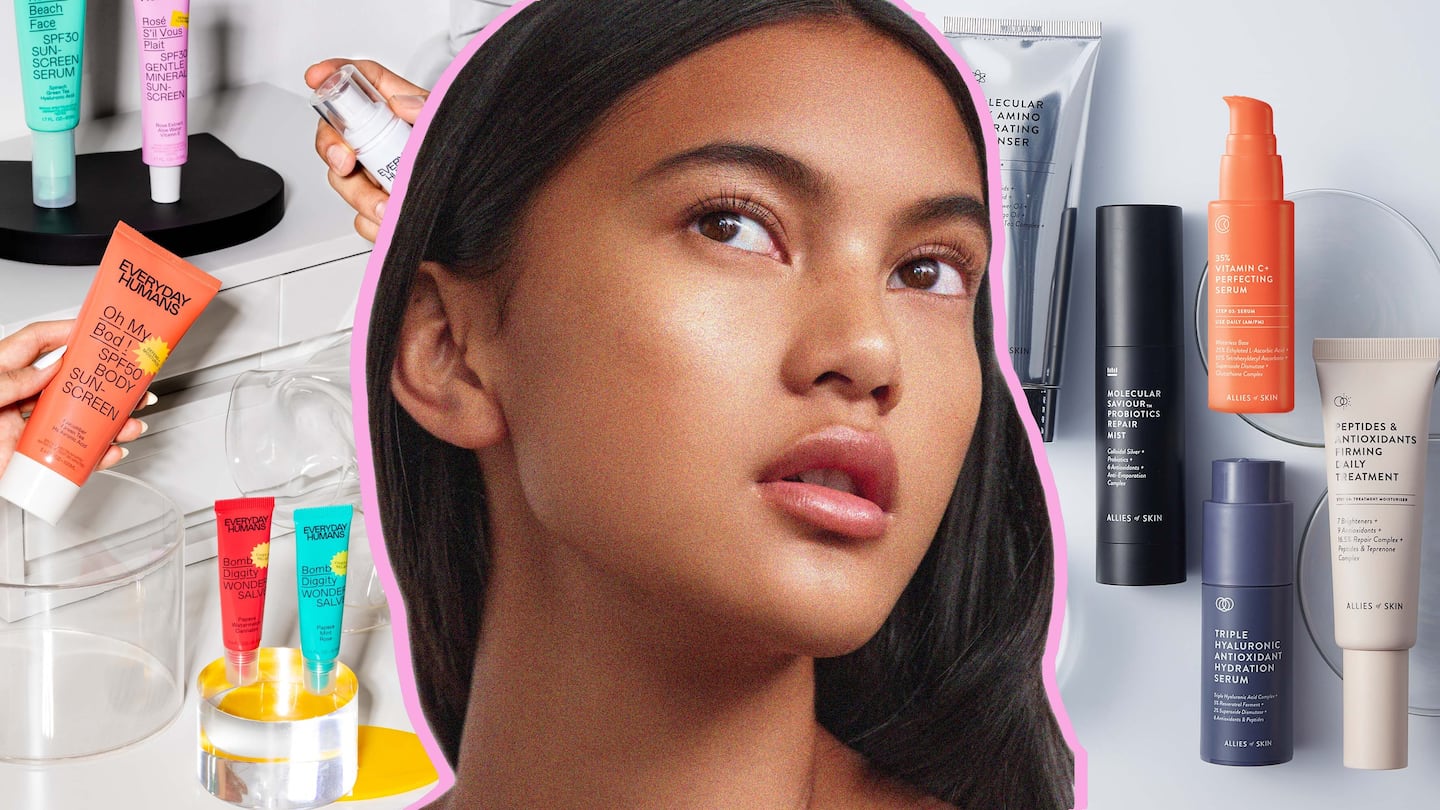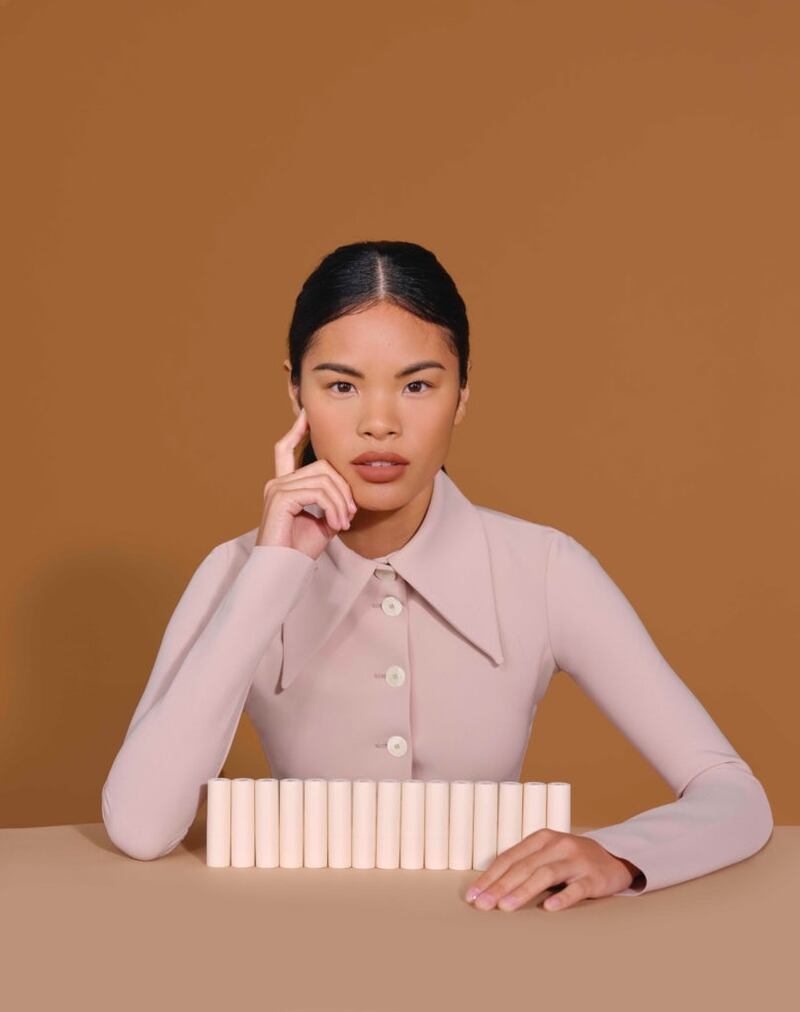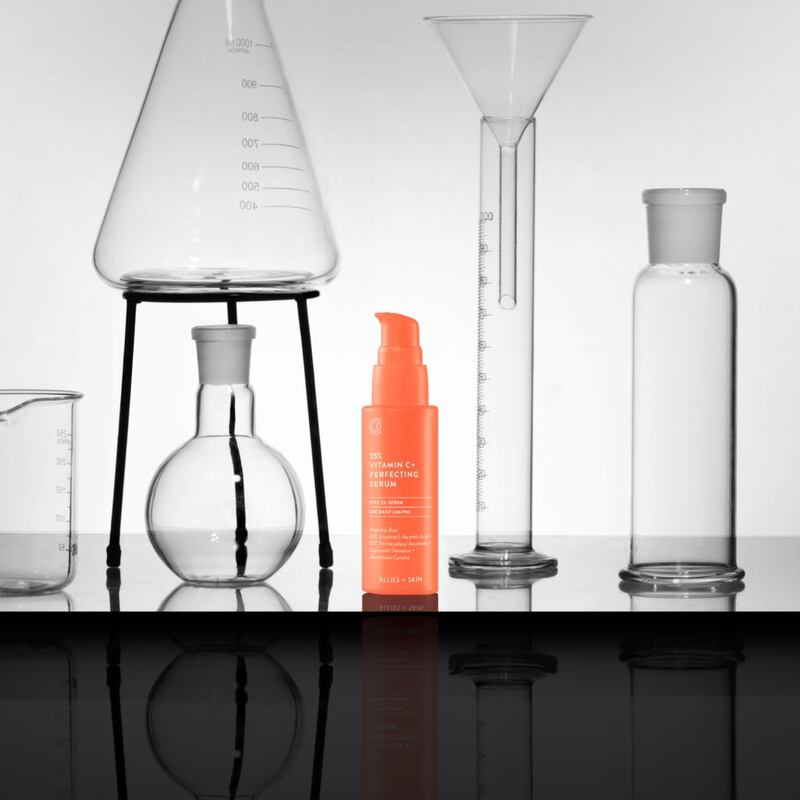
The Business of Fashion
Agenda-setting intelligence, analysis and advice for the global fashion community.

Agenda-setting intelligence, analysis and advice for the global fashion community.

LONDON, United Kingdom — The term "glass skin" was propelled into the mainstream beauty lexicon in 2017, just as the K-beauty boom approached its peak. And while near-translucent, dewy complexions – and the 12-step skin-care routines theoretically required to achieve them – have yet to go out of style, a new cohort of entrepreneurs are challenging the idea that Asian beauty begins and ends in Korea.
“I’m Asian and my skin’s not glassy,” said Georgina Wilson, co-founder and brand director of Filipino beauty brand Sunnies Face, which launched in 2018 and is best known for its matte lipsticks with shades formulated to suit Asian skin tones. “Filipino, Malaysian, Indonesian skin tones are really different from Chinese, Korean and Japanese ones. There’s so much within our region to cover.”
Wilson hopes Sunnies Face’s increasingly global reach will help widen the definition of Asian beauty. Sunnies Face became Chinese e-tailer Taobao’s third-highest-selling beauty brand in December 2019 and is gearing up to launch across Southeast Asia next month (the US, Europe and Middle East are in the works).

Sunnies Face's Fluffmatte campaign | Source: Courtesy
ADVERTISEMENT
As a Filipino brand, the success of Sunnies Face is something of an outlier in the Asian beauty world. China, South Korea and Japan make up around 80 percent of the Asia-Pacific beauty landscape. However, Indonesia, Malaysia and Thailand are emerging as hotspots for new beauty and personal care trends. Indonesia's $950 million colour cosmetics market, for one, is projected to grow at a compound annual growth rate of 11 percent over the next five years, according to data from Mintel. Sunnies Face isn’t the only Asian brand with ambitious plans to expand into the US and Europe — others, like Singapore’s Allies of Skin and Everyday Humans, have already made inroads with top retailers like Sephora and Ulta.
The K-Factor
Following Shiseido’s arrival in Hawaii in 1962 and SKII’s expansion in the 2000s, Japanese brands found a foothold in Western beauty retail. But it wasn’t until the K-beauty boom around eight years ago that Asian brands entered the mainstream.
“Korean skincare technology took the blinkers off for many Western consumers,” Cult Beauty Founder Alexia Inge wrote in an email. “Now, simply being an Asian brand [piques] interest in the same way that being a French brand did in the ‘90s and ‘00s.”
Many of the Asian brands stocked in US stores had the backing of beauty giants like P&G and Amorepacific. Even the independent Korean brands in the most recent wave could ride the international surge in popularity of Korean soap operas, movies and pop acts.
A new brand from Indonesia or Singapore can’t count on that sort of support.
“The main challenge will be how we compete with Korean brands and how to convince customers that our products are on the same level,” said Revata Pingkan, chief executive of Gentle Hour, an Indonesian skincare line that launched a month ago with the goal to help customers embrace their natural skin tone and texture. The brand plans to expand to Singapore later this year.

Allies of Skin's Vitamin C serum | Source: Courtesy
ADVERTISEMENT
Nicolas Travis faced the same problem when he began pitching Allies of Skin to overseas retailers. Indeed, save for Allies of Skin and data-driven skin-care brand Skin Inc., few Singaporean beauty businesses have gained ground abroad.
“When you talk to people about Singapore they’re like, ‘You have a great airline,’ not, ‘You make really great skin care,’” said Travis, who studied biomedicine and pharmaceuticals and set out to fill a gap he spotted in the global market for “grammable” but still-effective products. Travis’ four-year-old business, stocked by global retailers from Cult Beauty to Net-a-Porter to Sephora (and as of this week, Liberty), is on track to exceed 10 million SGD (around $7.3 million) in sales this year.
There are signs the K-beauty boom may be peaking, potentially creating openings for new brands.
“K-pop might have been great for initial recognition of the Korean beauty category, but there is a fickleness associated [that] can lead to a short lifecycle,” said Cult Beauty’s Inge.
K-pop might have been great for initial recognition of the Korean beauty category, but there is a fickleness associated that can lead to a short lifecycle.
Post-Covid, shoppers are shifting away from mass beauty players known for playful shades and packaging, towards brands focused on good ingredients and innovative technology, said Euromonitor analyst Emily Leung.
In March, Travis teamed up with Sephora Asia to launch PSA: a lower-priced, Gen-Z focused sub-brand planning launches across Asos, Revolve and Cult Beauty. He’s also in talks with a medical device maker and pharmaceutical companies in China that will distribute his products to dermatology clinics.
“I needed something to make sure I don’t have too much reliance on a single [wholesale] channel,” he said.
See and Be Seen
ADVERTISEMENT
Hong Kong-born Charlotte Pienaar relaunched sunscreen brand Everyday Humans in June — its predecessor, Everyday for Everybody, launched with Madewell, Urban Outfitters and Anthropologie before joining Target's accelerator program. The new iteration caters to young customers with tight budgets and half of the brand’s business is direct-to-consumer. On the wholesale side, it signed with Ulta in the US and Sephora across Asia, with Australia and New Zealand to follow in October.
Aware that the market was already full of brands offering effective sun protection, she wanted to create an affordable, non-toxic alternative for millennial and Gen Z customers. Pienaar started with the formula.
“When we say we’re inclusive, we’re not bullshitting,” she said. “We’ve tested it on people with dark skin tones, people with yellow undertones, people who are super pale.”
Brand identity became the focus — Pienaar sought a design that would be an entry point for young beauty consumers around the world and generate excitement on both direct-to-consumer and wholesale channels. “Online, you can have a lot of hoo-ha — you’ve got content, emails, crazy boxes with confetti and then the product,” she said. Offline, the item has to speak for itself.
Vibrant colours and cheeky product names, like a sunscreen serum dubbed ‘Resting Beach Face,’ are Pienaar’s solution. Everyday Humans’ Instagram account features selfies taken by happy customers that feature their tropical-hued tubes.
https://www.instagram.com/p/CFKTow6HI0Q/
Some brands will have an added push from Asians abroad, witnessing the rise of homegrown businesses they’re keen to support. At the same time, Inge notes that Asian players should make the most of the momentum of interest when consumers overseas start dipping their toes into international waters.
“Innovation, high-performance efficiency and great storytelling is essential to building an enduring brand no matter where you are,” she said.
Though Sunnies Face has yet to launch in the US or Europe, demand is already booming with some shoppers outside China and the Philippines getting their hands on products through resellers. At home, the brand made a splash as a spin-off of eyewear brand Sunnies Studios, thanks to its influencer founders’ sizeable Instagram followings.
Stateside, the hype started when makeup artists began using and sharing photos of Sunnies Face products seeded to them or sent to them by friends; lipsticks were soon spotted on the likes of Kate Bosworth after making it into Pati Dubroff’s kit. Rosie Huntington-Whiteley, another fan of the brand, reached out to its team and later sold an exclusive curation of products on her site Rose Inc.
Wilson has yet to hire a PR firm: word of mouth among industry insiders has done the trick so far. But the brand is still taking its time to decide on a cost-efficient strategy before breaking into the market officially, whether directly or through a local partner.
It's important to focus on the quality of the revenue and not the revenue itself.
Travis is working on launching Amazon stores for the US, Europe, Asia and Australia — “a painful process” given the different processes required for each market. When it comes to cross-border sales, he encourages businesses to do their homework: certain ingredients, types of packaging and product descriptors (like ‘repair,’ or ‘pigmentation’) can land a brand in hot water, which is why not all nine Allies of Skin products are sold across its markets.
Travis adds that brands need to ensure they have sufficient capital at hand before signing on with a retail partner. Commissions, obligations to partake in promotions, samples, driving traffic to their sites and training in-store staff can squeeze millions out of a small business.
“[Money is] going to show up on your balance sheet as revenue but it’s not quality revenue,” Travis adds. “It’s important to focus on the quality of the revenue and not the revenue itself.”
THIS WEEK IN BEAUTY
Ulta scraps Canada expansion plans. The American beauty retailer announced its decision to hit pause on international expansion and will instead focus on operations at home.
Sephora offers same-day delivery with Instacart in the US and Canada. More than 400 Sephora stores in Canada and California will soon offer same-day delivery through grocery delivery service Instacart, as the retailer expands shopping services in a competitive market.
Unilever's Dutch shareholders back UK move. The British-Dutch multinational that owns Dove, Kate Somerville and Hourglass will simplify its corporate structure by transferring to a single entity in London, but its plan still needs approval from British shareholders.
A second lockdown could shrink the UK beauty industry by 30 percent. Having only reopened for three months, reinstating restrictions would deal a harsh blow to both business and workers, especially since 54 percent of employees are self-employed and can't be furloughed.
Sephora Canada adds menstrual pads and tampons to its online offering. This is the first time the retailer has sold period products and forms part of its strategy to become a one-stop-shop for beauty and personal care.
Former Coty exec named La Prairie's VP for travel retail. Noelle Goris is taking on the newly created role following stints at the Burberry Beauty owner and P&G. La Prairie is also reorganising its board to accelerate post-pandemic recovery.
Jenna Lyons launches lash venture. The former J. Crew creative director has partnered with makeup artist Troi Ollivierre to create LoveSeen, a line of natural-looking false lashes.
AI skincare takes on acne. With facials a no-go for cautious shoppers, bespoke skincare brands like Atolla, Proven, and Yours are using facial recognition and algorithms to customise products and regimes.
Kobe Bryant's Art of Sport closes $6 million funding round. The skin, body and haircare brand created by the late basketball legend and serial entrepreneurs Brian Lee and Matthias Metternich claims to be the fastest-growing men's personal care brand in the US.
TikTok has birthed beauty trends with very little staying power. Despite this reality, labels are increasingly using sweet treats like glazed donuts, jelly and gummy bears to sell their products to Gen-Z shoppers.
This month, BoF Careers provides essential sector insights to help beauty professionals decode the industry’s creative landscape.
The skincare-to-smoothie pipeline arrives.
Puig and Space NK are cashing in on their ability to tap the growth of hot new products, while L’Occitane, Olaplex and The Estée Lauder Companies are discovering how quickly the shine can come off even the biggest brands.